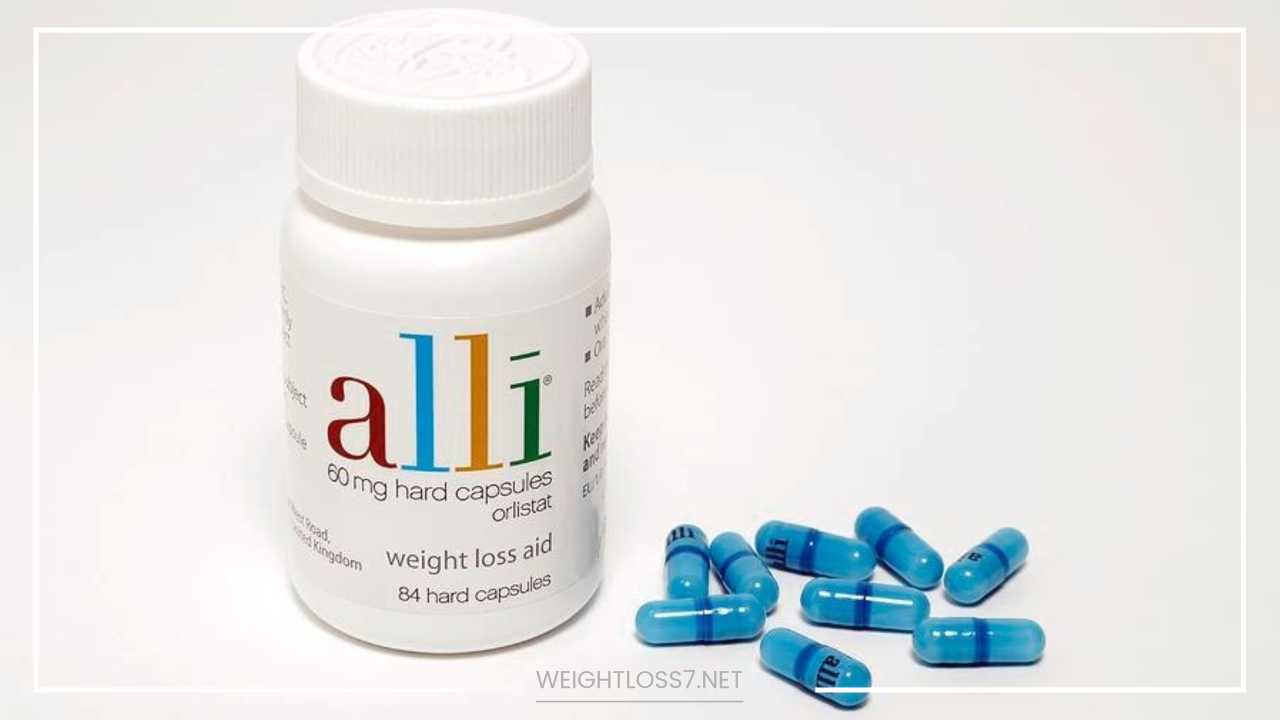Side Effects of Alli Weight Loss Pill

Alli is an over-the-counter pill designed to help overweight adults lose excess weight. Alli is actually a version of a prescription drug known as orlistat in a reduced-strength form.
Adults over the age of 18 may purchase this OTC medication and combine it with regular exercise and a low-fat diet to lose weight. Unfortunately, it does come with some unpleasant side effects as well as safety warnings to consider.
How Does Alli Work?
Alli belongs to a class of medications called lipase inhibitors. Such medications block the intestines from absorbing some of the fat in the foods that you eat.
Specifically, Alli blocks about 25% of the fat that you consume. Fats that are not absorbed exit your body through your stools, or bowel movements.
Some data suggest that treatment with Alli helps reduce the amount of a particularly dangerous type of belly fat, called visceral fat.
Visceral fat has been linked to several chronic, life-threatening conditions, including type 2 diabetes, high blood pressure, heart disease, and stroke.
Side Effects of Alli
Bowel changes are the most common side effect of Alli and occur when the undigested fat moves through the digestive system.
The best way to limit these changes is sticking to a low-fat diet. According to Dr. Hensrud of the Mayo Clinic, these side effects are more likely to go away the longer a patient remains on the drug.
They typically occur in 20% of patients and may last one week or longer. According to the literature included with the medication, each reduced-calorie meal eaten with Alli should have an average of 15 grams of fat.
Eating meals too high in fat increases the risk of side effects, which include:
- Bowel movements that are difficult to control
- Frequent bowel movements
- Loose stools and diarrhea
- Gas
- Oily anal discharge
Warnings About Alli
The FDA began a safety review of orlistat in 2009 after reports of major liver injury to people using the medication. 47 reports of acute pancreatitis and 73 reports of kidney stones were attributed to orlistat medication.
These reports were very rare, and the FDA found no link between the pill and an increased risk of liver injury.
The label for the drug now carries a warning, however, about the signs of liver damage, which includes brown urine, yellow eyes and skin, a loss of appetite and itching.
Because of these side effects, the consumer group Public Citizen is fighting to have Alli removed from the market.
There are also some individuals who should not take Alli, including those at a healthy weight. Individuals taking cyclosporine medications like Neoral and Sandimmune should also avoid the OTC drug, as well as people who have had an organ transplant or have existing difficulties properly absorbing food.
Alli may also be inappropriate for those with diabetes and thyroid disease, and people taking prescription blood-thinning medications.
Because orlistat/Alli works by decreasing your body’s absorption of fat-soluble vitamins like vitamin E, D and A, you need to take a vitamin supplement every day so you don’t develop nutrient deficiencies.
Who Should Not Take Alli
Always tell your doctor about all the medications you are taking. Alli can interact with certain drugs, affecting their levels in your body or how they work. This may lead to life-threatening consequences.
Do not take Alli if:
- You have had an organ transplant. The medicine is known to interfere with drugs used to prevent transplant rejection.
- You are taking a drug called cyclosporine.
- You are not overweight.
- You are pregnant or breastfeeding.
Check with your health care provider before taking this medicine if you are taking any of the following:
- Warfarin (a blood thinner)
- Diabetes medications
- Thyroid disease medications
- Other weight loss medications
In some cases, your dosage of medication may need to be adjusted.

















